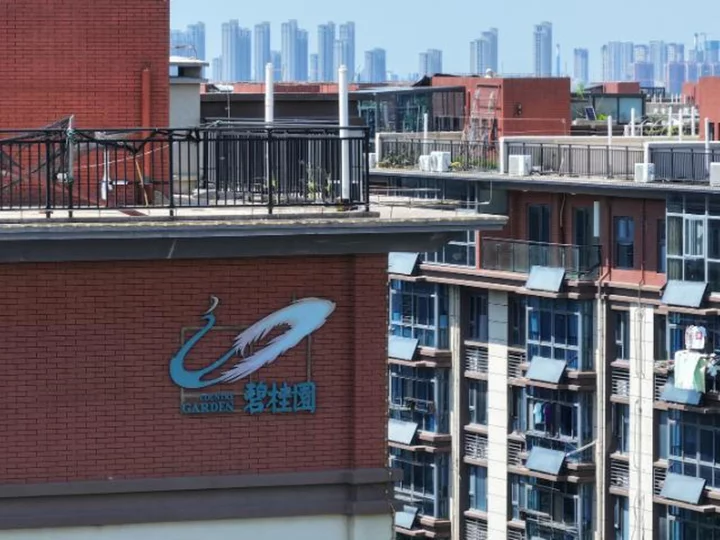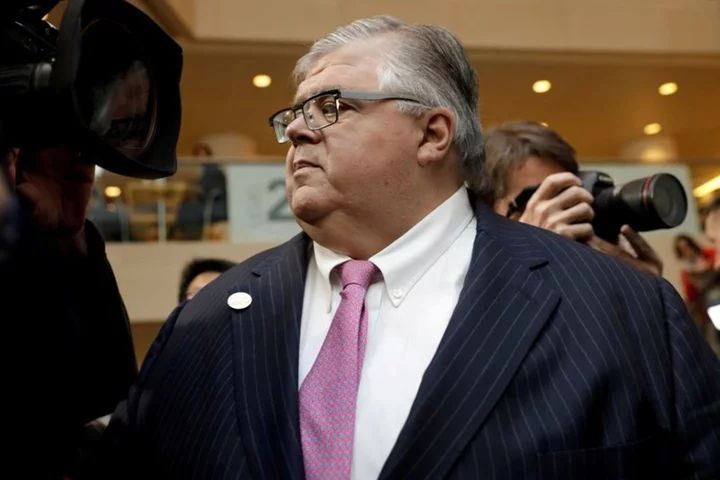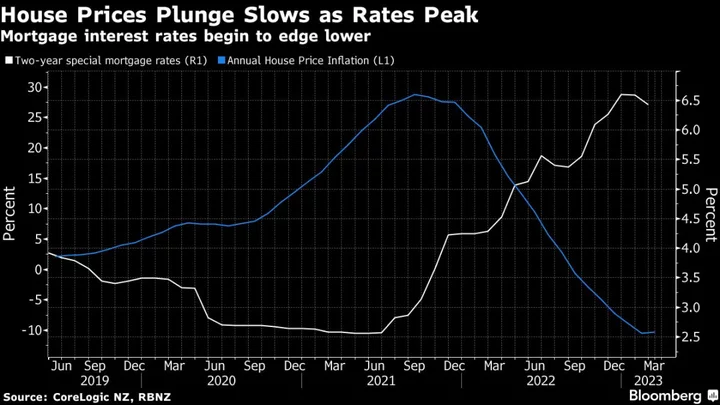Investors in embattled Chinese property giant Country Garden are breathing a collective sigh of relief Monday, after it reportedly won approval from creditors to extend a major bond payment to avoid default, in a development that analysts say will give the firm some badly needed respite.
The deal was significant, as it was the first debt extension the firm has secured since its liquidity crisis became public last month.
It not only buys time for the company to avoid default but also offers a temporary reprieve for the real estate industry, which has been gripped by fears that Country Garden's debt woes would spill over to its peers and ripple through the economy. The company hasn't replied to a request for comment from CNN.
On Monday, Country Garden's stock soared 13% in Hong Kong at midday trade following multiple reports that bondholders had agreed a plan for the company to extend payment for a 3.9 billion yuan ($540 million) bond that matured Saturday.
Hong Kong's Hang Seng Index advanced 2.4%, led by a surge in the property sector. Shares also received a boost from a new batch of stimulus measures announced last Thursday to boost the property market. Hong Kong stocks were closed last Friday because of a typhoon.
On Friday, other property developers rallied as well. Sunac China traded 32% higher. Longfor Properties and China Overseas Land were up 9% and 8% respectively.
According to the agreement with creditors, which was reported by multiple state-owned media outlets on Saturday, Country Garden will now be able to stretch its payment of the outstanding principal of $540 million into 2026. But interest on the bond must be paid as originally scheduled.
The bond was issued in September 2016, with an issue amount of 5.83 billion yuan ($800 million) and a coupon rate of 5.65%, according an offering document seen by CNN.
More than 56% of the bondholders affected, including major state-owned banks and private equity funds, voted yes to the agreement, according to state-owned Southern Media Group.
The deal "means nearly 70% of the bond's principal payment will be delayed to three years later, which could greatly reduce pressure on Country Garden and improve its long-term debt servicing ability by trading 'space for time,'" analysts from Huatai Securities wrote in a Sunday research note.
This particular bond had the largest outstanding balance that the company needed to pay out among its onshore debt in the coming year, they added.
But, according to Yeap Jun Rong, a market analyst at IG, past lessons from property developer China Evergrande, which defaulted in 2021, suggests any extension could be just "a near-term reprieve," with the lack of an eventual resolution still a "headwind" for risk sentiment eventually.
Country Garden, which was China's largest residential developer by sales last year, is battling a cash crunch.
Last week, it reported a record loss of $7 billion for the first six months of the year, citing a persistent slump in the property market and a difficult refinancing environment. It confirmed that it had missed payments to holders of some of its offshore bonds last month and could default if the firm's financial conditions continue to deteriorate.
The company has nearly $200 billion in total liabilities and faces mounting pressure to pay off its debts.
It has about 31 billion yuan ($4.3 billion) in bonds set to mature through the end of 2024, according to Moody's. This week, the company faces deadlines to pay two of its offshore bonds, as a 30-day grace period is set to expire. A failure to pay those creditors could lead to a default.









